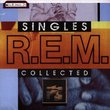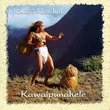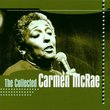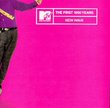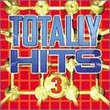| All Artists: Rusty Draper Title: Rusty Draper - Greatest Hits Members Wishing: 1 Total Copies: 0 Label: Collector's Choice Original Release Date: 8/17/1999 Release Date: 8/17/1999 Genres: Country, Pop, Broadway & Vocalists Styles: Classic Country, Vocal Pop Number of Discs: 1 SwapaCD Credits: 1 UPC: 617742008425 |
Search - Rusty Draper :: Rusty Draper - Greatest Hits
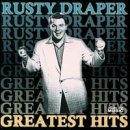 | Rusty Draper Rusty Draper - Greatest Hits Genres: Country, Pop, Broadway & Vocalists
|
Larger Image |
CD DetailsSimilarly Requested CDs
|
CD Reviews50's Pioneer Ron Hall | Lake Butler, Fl United States | 04/11/2003 (4 out of 5 stars) "Rusty Draper was one of the first singers to cross over from Country/Western to Rock. His recordings of Gamblers Guitar and Whispering Sand are true classics. A very enjoyable and satisfying CD. Buy this to enjoy the music of 1950's once again." One Of The Forgotten Stars Of The 50s Ron Hall | 07/30/2007 (4 out of 5 stars) "When discussing the non-R&R singers who managed to hang in there during the early years of that genre, names conjured up will usually include Guy Mitchell, Teresa Brewer, Perry Como, Nat Cole, Sinatra of course, Dean Martin, Doris Day, The McGuire Sisters, etc. etc. Rarely, if ever, does the name Rusty Draper pop up. It should, because between 1953 and 1961 he chalked up quite a string of hits.
The "Ol' Redhead" was born Farrell Draper in Kirksville, Missouri on January 25, 1923 and, so the story goes, found himself in show business in one form or another beginning at age 12. As he honed his skills he began to make a name for himself on the club circuit which, in turn, led to stints on the Patti Page, Eddie Cantor and Ed Sullivan TV shows. After securing a contract with Mercury Records his first release, a cover of The Carlisles' Country hit No Help Wanted, with the backing of The Jack Halloran Singers and David Carroll & His Orchestra, went to # 10 on the Billboard Juke Box charts in March 1953. No a bad début, but his second release was even better. Taking a song written by Jim Lowe (who would have a memorable hit of his own in The Green Door in 1956), he fairly exploded onto the charts with Gambler's Guitar. Again backed by the Carroll orchestra he achieved # 6 on both the Billboard Jockey and Country charts and saw the hit hang around for a combined 23 weeks. Another Lowe-penned hit later that year was the mournful Lighthouse which went to # 23 Pop, and he then capped the year off with another # 23, Native Dancer, which carried over into early 1954. The rest of 1954 was a wash, but in 1955 he had a banner year. First up was a rollicking cover of the Boyd Bennett hit Seventeen which went as high as # 15 Billboard Top 100, finishing third behind Boyd (# 5) and The Fontane Sisters (# 3). But that fall his version of The Shifting, Whispering Sands took top spot at # 3 Top 100, edging out the two-sided Billy Vaughn cut (# 5) and its wonderful Ken Nordine narration, and when the year ended he had Are You Satisfied? climbing the charts (it would eventually top out at # 11 Top 100 early in 1956). It was also in 1956 that Held For Questioning managed only a # 50 Top 100 position, and that he went head-to-head with the venerable Vaughn Monroe & His Orchestra with the novelty In The Middle Of The House, settling for a # 20 Top 100 to Monroe's # 11. On each of the hits starting in 1955 he was still back by the Carroll orchestra and The Jack Halloran Singers on all but Seventeen. 1957 started off slowly with Let's Go Calypso and then the bouncy Tiger Lily managing only # 53 and # 88 Top 100 respectively with the backing of Hugo Peretti (of Hugo & Luigi fame) & His Orchestra. But with Freight Train, with the backing of The Dick Noel Singers and Carl Stevens' orchestra, and again going head-to-head with the Chas. McDevitt Skiffle Group and vocalist Nancy Whiskey, he had his next and last big hit, hitting # 6 Top 100 that summer to their # 40. And yet it's usually the latter's version that gets all the play in Fifties retrospective compilations. The rest of the decade produced no hits, but in 1960 and 1961 he again appeared on the pop charts with covers of Hank Locklin's Please Help Me, I'm Falling (# 54 Billboard Hot 100) and Cowboy Copas' Signed, Sealed And Delivered (# 91 Hot 100). After switching to Monument Records he also scored with Willie Nelson's Night Life in 1963, taking it to # 57 Hot 100. Another four years would pass before My Elusive Dreams edged onto the Country charts at # 70 in July 1967, followed in 1968 by California Sunshine (# 70 Country in March) and Buffalo Nickel (# 59 Country in August). In 1970 he had a # 73 Country with Two Little Boys, thus ending his association with Monument. His final hit came in 1980 with the venerable old Harbour Lights, which he took to # 87 Country on the KL label. In this neat little package you get all 14 of his Mercury hits along with the flipside to Please Help Me I'm Falling - a rousing rendition of the Bill Monroe classic Mule Skinner Blues which made it to # 105 on The Billboard Top 100 "bubble under" charts. There are also 4 pages of fascinating liner notes in the foldout insert and a partial discography of the contents (no chart details). It's puzzling that he is seldom mentioned in any reviews of that era, but at least he can take some comfort from an unexpected phone call in 1972. Astronaut Gene Cernan called to say that, on their trip to the moon, it was his records that they awoke to each morning. You can't get much better praise than that." |

 Track Listings (18) - Disc #1
Track Listings (18) - Disc #1
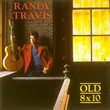
![The King And I: From The Soundtrack Of The Motion Picture (1956 Film) [Soundtrack]](https://nationalbookswap.com/cd//m/51/5051/175051.jpg)

